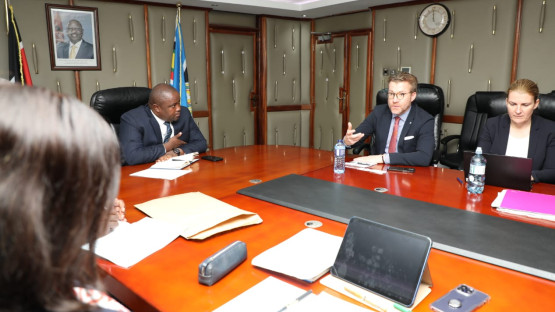
Our Correspondent | Africa Guardian
In November 2024, the International Atomic Energy Agency (IAEA) undertook two legislative assistance missions in Africa, supporting Kenya and Uganda in enhancing their nuclear legal frameworks and aligning with international legal instruments.
Kenya: Building a Comprehensive Nuclear Legal Framework
Kenya is progressing toward establishing a robust national nuclear programme and research reactor. Responding to a request from Kenya’s Nuclear Power and Energy Agency (NUPEA), the IAEA conducted two national workshops in Nairobi from November 12 to 14, 2024. These sessions addressed key areas, including nuclear security laws, international legal instruments, and civil liability for nuclear damage.
The workshops brought together over 60 participants, including representatives from the Office of the Attorney General, the Director of Public Prosecution, and the Bar Association. To foster collaboration, bilateral meetings were held with senior officials and decision-makers from the Ministry of Foreign Affairs, the Ministry of Energy, and parliamentary Energy Committees.
Justus A. Wabuyabo, NUPEA’s CEO, praised the mission’s impact:
“The IAEA-led mission provided a critical platform for stakeholders and policymakers to discuss Kenya’s nuclear legislative framework, ensuring alignment with international standards for peaceful nuclear applications. Stakeholders expressed strong support for developing an internationally acceptable framework.”
Uganda: Advancing a Comprehensive Nuclear Law
Uganda is expanding its use of nuclear technology and exploring nuclear power development for the first time. The country is drafting the Atomic Energy Bill, 2024, to create a robust legal framework while working toward adherence to international nuclear legal standards.
From November 25 to 29, 2024, the IAEA facilitated discussions on Uganda’s draft bill in Kampala and Entebbe. The mission focused on identifying gaps in the legislation, raising awareness among policymakers, and ensuring the draft aligns with global standards.
State Minister of Energy, Okaasai S. Opolo, highlighted the mission’s timeliness:
“The IAEA’s support is pivotal as Uganda finalizes its comprehensive nuclear law, which will provide the legal and institutional framework for nuclear power plants and related industries.”
The IAEA reviewed the draft bill, offering detailed recommendations to strengthen the legislation. This effort aligns with Uganda’s goal of establishing a sound legal foundation for its nuclear power aspirations.
Collaborative Efforts for Nuclear Security
Both missions were conducted in partnership with the United Nations Office on Drugs and Crime (UNODC), which provided expertise on nuclear security under the International Convention for the Suppression of Acts of Nuclear Terrorism. These efforts were part of the IAEA Legislative Assistance Programme, executed through the interregional technical cooperation project INT0102.
The missions underline the growing commitment of African nations to align with international nuclear norms, paving the way for safe, secure, and peaceful use of nuclear technology.
___
